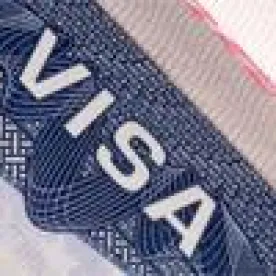Employers in the U.S. that seek to hire foreign workers for temporary employment in a specialty occupation must submit their petitions to USCIS beginning April 1, 2019 for employment starting no sooner than October 1, 2019 (start of the 2020 fiscal year).
H-1B employment authorization, often the only available immigration option for highly skilled workers, is highly sought-after and increasingly difficult to receive. Each fiscal year, there are a finite number of “new” H-1B slots available for individuals who were not previously “charged” against the annual cap.
The annual cap limit for new H-1B petitions is 65,000, with an additional 20,000 allocated for foreign workers who have obtained a U.S. master’s degree or higher. In the 2018 filing season for fiscal year 2019, USCIS received more than 190,000 H-1B petitions within the first three days of the filing period, resulting in a lottery that occurs when demand exceeds supply.
With a strong economy and tight labor market, we expect an April H-1B lottery again, despite the significant increase in H-1B Requests for Evidence (RFEs) and denials from USCIS under the Trump Administration. For the best chance of obtaining a slot for FY 2020, we urge all employers seeking an H-1B sponsorship to immediately begin preparing H-1B petitions that are subject to the H-1B cap on behalf of their employees, and file them with USCIS on April 1, 2019.
What has changed this year?
Final rule
On January 30, 2019, USCIS posted a new final rule in the Federal Register, indicating that it would be amending the regulations governing H-1B cap-subject petitions.
Lottery order
For FY 2020, USCIS has reversed the selection order, and will first run the “regular” cap lottery to select H-1B petitions filed for all beneficiaries, which includes those eligible for the “master’s” cap. This means that the U.S. plans to increase the number of H-1B slots that go to foreign workers with a U.S. master’s degree or higher, since the 20,000 won’t have been “skimmed” off the top when the master’s cap was run first. Since those with advanced U.S. degrees will be included in the “regular” pool, they will have a better chance of receiving a slot. In fact, USCIS estimates that there may be an increase of nearly 16%, or 5,340 workers with advanced U.S. degrees.
Electronic registration suspended for FY 2020
Logistically, the USCIS is unable to implement electronic registration for this year’s lottery. Once implemented, however, employers will be required to first register electronically with USCIS during a designated registration period, and only those selected will be eligible to file an H-1B cap-subject petition. Once logistically feasible, electronic registration appears to be the future of the H-1B lottery.
What to do now
The stakes are high for foreign workers subject to and seeking employment under the H-1B cap. The time is now for employers to focus on preparing their FY H-1B cases for the April lottery. Unlike the IRS, USCIS offers no options to request an extension on the H-1B lottery deadline.




 />i
/>i
